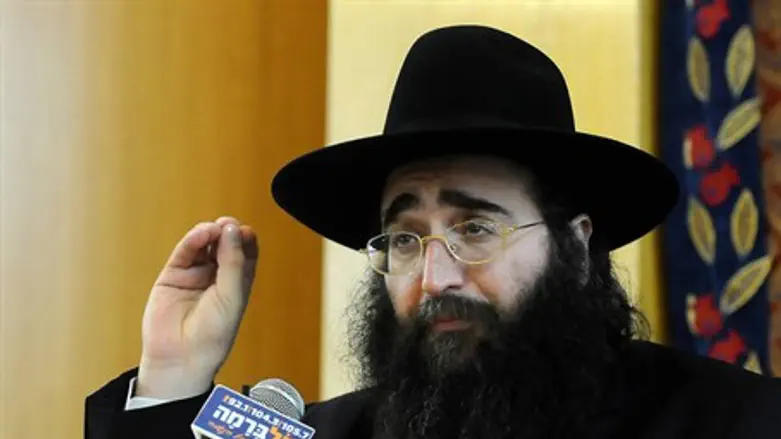
A day after his conviction on bribery charges, Rabbi Yoshiyahu Pinto, head of the Shuvu Yisrael sect, told followers that his suffering would save the Jewish people from “a difficult judgment. We accept everything with love and the knowledge that the patience we have had in the past years cause a 'sweetened judgment' for the Jewish people,” he wrote in a note to followers.
Rabbi Pinto allegedly attempted to bribe senior police officer Ephraim Bracha with $200,000 for information about a pending police investigation into the Hazon Yeshaya charity organization, which Pinto was rumored to be closely involved with. He accepted a plea bargain in the case. He was first accused of improprieties in 2012.
In the letter to followers, Pinto wrote that his experience of the past few years had been a trial from Heaven. “These are special days, for me personally and for all of us, and we are always thinking about how we must behave at this time,” he wrote. “We must strengthen ourselves for our own sakes and the sakes of those who come after us.
“Those who are patient will merit great things, and we have seen this among many of our great rabbis, especially Hillel, the ancient sage upon whose word we rule in many laws in Judaism, who was known as a man of great patience. We must realize that our suffering in recent years are for the benefit of the Jewish people, and will bring about a good result in the end for the entire world,” he added.”
Despite admitting to involvement in a multitude of corruption scandals, Pinto himself has been highly vocal over his innocence, claiming in hyperbolic statements to his followers that the verdict has "stabbed them with a million knives" and claiming he is "the most persecuted in this generation."
The statements were later found to be violations of the plea deal, causing three of his most high-profile attorneys to quit the complex case in October. In addition, he filed a petition through rights group Ometz calling for a criminal investigation into the plaintiff who accused him of the charges.